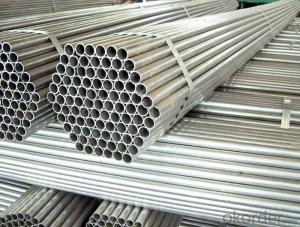Steel rebar, also known as reinforcement bars, plays a crucial role in the construction industry. These steel bars are used to reinforce concrete structures, providing strength and stability. But with so many sizes and types available, choosing the right one for your project can be a daunting task. In this article, we’ll explore the different steel rebar sizes, their applications, and how to select the best one for your needs.
The Importance of Steel Rebar
Before we dive into the different sizes, it’s essential to understand why steel rebar is so important. Concrete is a fantastic building material, but it has its limitations. It’s strong in compression but weak in tension. That’s where steel rebar comes in. The steel provides tensile strength, while the concrete resists compression, creating a strong and durable structure.
Types of Steel Rebar
There are two main types of steel rebar: straight and deformed. Straight rebar is used for simple applications, like supporting walls or floors. Deformed rebar, on the other hand, has ridges or deformations along its length, which help it bond better with the concrete and resist slippage.
Steel Rebar Sizes and Grades
When it comes to steel rebar sizes, there are several factors to consider, including diameter, grade, and surface finish. The diameter is measured in millimeters and ranges from 6mm to 40mm. The grade of the rebar refers to its strength, with common grades being Grade 40, Grade 60, and Grade 80. The surface finish can be plain, ribbed, or epoxy-coated, depending on the application.
Common Steel Rebar Sizes and Their Uses
Now, let’s take a look at some common steel rebar sizes and their uses in construction projects:
– 6mm Rebar: This is the smallest size and is often used for light reinforcement in slabs and walls.
– 8mm Rebar: A versatile size, it’s used for general reinforcement in various applications, including beams, columns, and walls.
– 12mm Rebar: This size is commonly used for main reinforcement in beams and columns, providing significant strength.
– 16mm Rebar: Ideal for heavy-duty applications, it’s often used in the construction of bridges and large buildings.
– 20mm Rebar: The largest size, it’s reserved for critical structural elements where maximum strength is required.
Selecting the Right Steel Rebar Size
Choosing the right steel rebar size depends on several factors, including the project’s load requirements, the concrete’s strength, and the rebar’s exposure to the environment. It’s crucial to consult with a structural engineer or a construction professional to determine the appropriate size for your project.
Installation and Handling of Steel Rebar
Proper installation and handling of steel rebar are vital to ensure its effectiveness. Rebar should be clean, free of rust, and properly cut to the required length. It should also be securely positioned within the formwork, with adequate spacing and support to prevent movement during concrete pouring.
The Future of Steel Rebar
As the construction industry evolves, so does the technology and materials used. New types of rebar, such as high-strength steel or fiber-reinforced polymers, are being developed to improve strength and durability. Additionally, advancements in manufacturing processes are making steel rebar more sustainable and cost-effective.
Conclusion
Steel rebar is an indispensable component of modern construction. By understanding the different sizes, types, and applications, you can make informed decisions for your projects. Remember, the right steel rebar can mean the difference between a stable, long-lasting structure and one that may not meet your expectations. So, take the time to explore your options and choose wisely.

